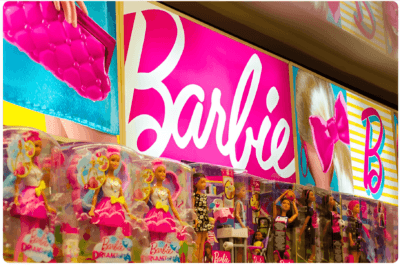Mattel, the toy giant behind Barbie and Hot Wheels, may raise prices in response to President Donald Trump’s newly enacted 10% tariff on Chinese imp
Mattel, the toy giant behind Barbie and Hot Wheels, may raise prices in response to President Donald Trump’s newly enacted 10% tariff on Chinese imports, executives signaled this week. The company, which sources about 40% of its products from China and under 10% from Mexico, is assessing its supply chain strategy but has not ruled out passing costs onto consumers.
Mattel Brands:
CEO: Pricing Action on the Table
Speaking on Feb. 4, Mattel CEO Ynon Kreiz acknowledged that price hikes are among the potential responses to the tariffs.
“As we look to take mitigating actions, it starts with our supply chain, but pricing action is also one of the options we’re looking at,” Kreiz said during an interview, according to Bloomberg.
“We’ll work very closely with our retail partners and make sure we have the right variety of products available at affordable price points,” he added.
Tariffs’ Impact on the Toy Industry
Trump’s tariffs, which took effect on Feb. 4, add a 10% duty on Chinese imports, increasing costs for companies that manufacture products in the region. While planned 25% tariffs on goods from Mexico and Canada have been temporarily paused due to border security agreements, no such deal has been reached with China.
The Toy Association, an industry trade group, warned that the levies could have a widespread effect, as approximately 80% of all toys sold in the U.S. are produced in China.
“This is of particular concern for independent toy retailers,” said Dan Marshall, co-owner of Mischief Toy Store in St. Paul, Minnesota. “We’re going to suffer as a small business, but so is everyone in this country.”
Marshall noted that his store is trying to stock up on inventory early to avoid passing costs onto customers but admitted uncertainty about the long-term impact.
Mattel’s Financial Position and Long-Term Strategy
Despite the tariff concerns, Mattel recently posted better-than-expected earnings, reporting a 1.6% revenue increase to $1.65 billion and earnings per share of 35 cents, surpassing analyst estimates of 20 cents. The company also improved gross margins to over 50% through cost control measures.
However, overall toy sales dipped 1.1% for the year. While Hot Wheels remained a strong performer, the sales surge from the 2023 Barbie film has slowed.
To offset future supply chain disruptions, Mattel has outlined a long-term plan to diversify its manufacturing operations. By 2027, the company aims to reduce its reliance on any single country, ensuring that no market accounts for more than 25% of its total production.
Meanwhile, industry advocates continue to push for exemptions on toy imports, citing concerns that higher prices could drive consumers toward unregulated, lower-quality alternatives.
“We want to make sure American kids continue to experience the immeasurable benefits of play while staying safe,” The Toy Association said in a statement. “We hope that as negotiations continue, toys will be exempted from any potential tariffs.”
Beat the Tariffs: Price increases are coming soon, so this is your chance to protect your profit margins and inventory! Save up to 15% off Select Mattel merchandise when you stock up now!
View Related Merchandise:
View All Mattel (40+ Special Offers)
Original article source: “Barbie, Hot Wheels Toys Could Soon Cost More as Trump Tariffs Concerning China Take Effect” published by Retail Wire on [February 5, 2025].


